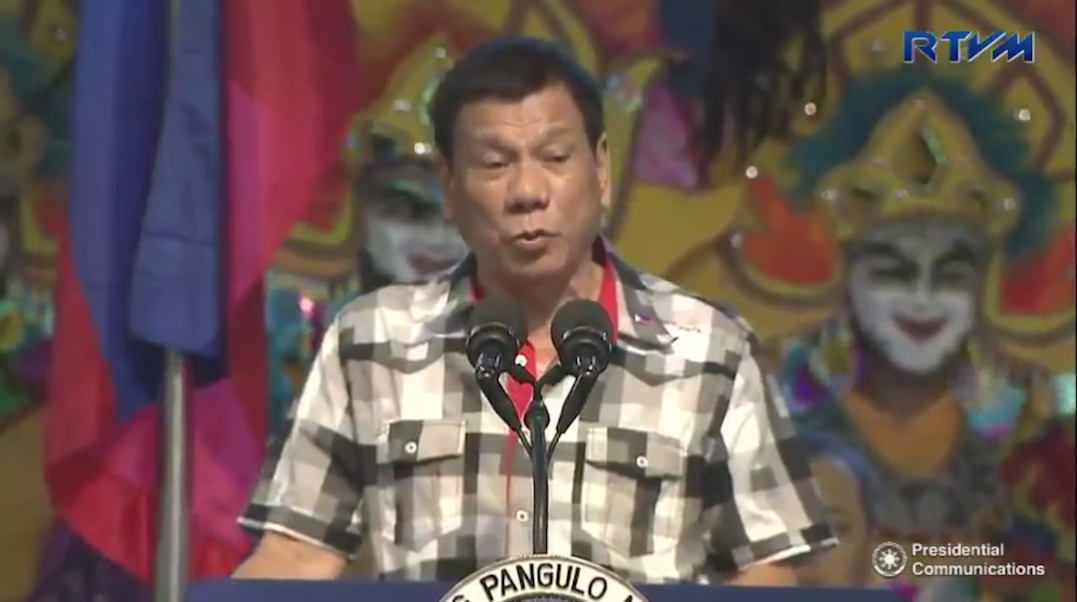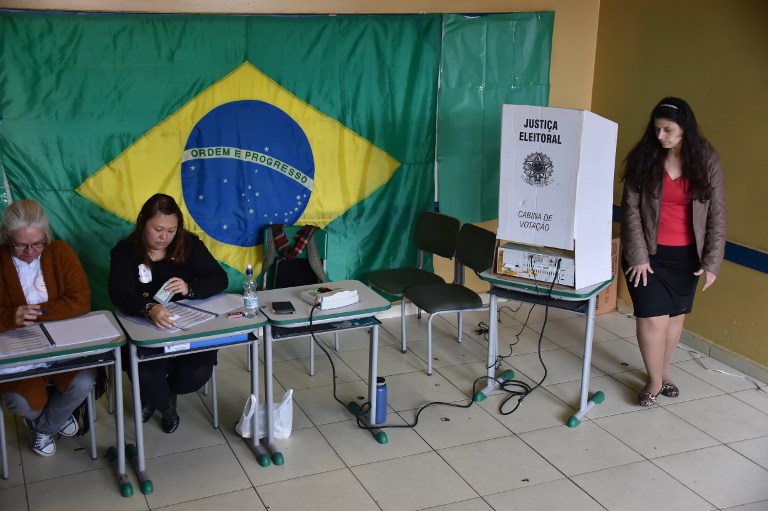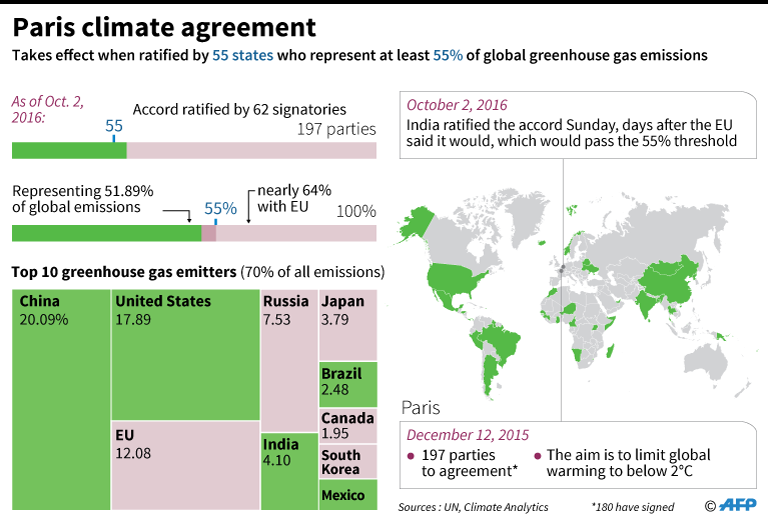![HURRICANE MATTHEW. This NOAA-NASA GOES East satellite photo shows storm activity in the Atlantic Ocean on October 1, 2016. Photo by Hector Retamal/AFP]()
KINGSTON, Jamaica (3rd UPDATE) – Hurricane Matthew meandered through the Caribbean on Sunday, October 2, moving more slowly but still packing a powerful punch, its sights set on Haiti, Cuba, and Jamaica.
The storm was 350 miles (565 kilometers) southwest of Port-au-Prince at 1500 GMT, with top wind speeds of 140 miles (220 kilometers) per hour.
Its movement slowed from 5 to just 3 miles per hour as it ambled from the Caribbean coast of Colombia and Venezuela, the Miami-based National Hurricane Center said on Sunday.
Caribbean authorities were scrambling to put preparations in place.
In Cuba, President Raul Castro traveled to the southeastern city of Santiago to personally oversee emergency operations just hours before the hurricane was due to hit.
Matthew had the potential to be a storm for the ages, he warned residents.
"This is a hurricane it's necessary to prepare for as if it were twice as powerful as Sandy," the Cuban leader said, referring to the megastorm that hit with massive destructive force in 2012.
Officials at the US naval base in Guantanamo Bay, Cuba announced a mandatory evacuation for all non-essential personnel and family members.
The evacuation "happened early this morning, and it's still ongoing," an official at the base told AFP on Sunday.
Briefly a furious Category 5 hurricane late Friday, September 30, Matthew remains a still-dangerous Category 4, the strongest to hit the Caribbean since Hurricane Felix in 2007.
"Preparations to protect life and property should be rushed to completion," the NHC warned in its latest advisory on Sunday.
On its current forecast track, Matthew's center will glance past Jamaica on Monday, October 3, dumping heavy rain on the island as it makes landfall on Haiti.
The storm is then expected to continue north, tearing across southern and eastern Cuba between Monday and Tuesday as it heads towards the Bahamas.
Forecasts predict the hurricane will dump 15 to 25 inches (40-60 centimeters) of rain over southern Haiti "with possible isolated maximum amounts of 40 inches."
The storm is also expected to drop 10 to 20 inches of rain over eastern Jamaica, the Dominican Republic, and eastern Cuba, "with possible isolated maximum amounts of 25 inches."
"This rainfall will likely produce life-threatening flash floods and mud slides," it warned.
Haiti, Jamaica batten down
Jamaicans waited in long lines at supermarkets, hardware stores, and gas stations Saturday to stock up on essentials before the storm's arrival.
"This is not a joking matter," Desmond McKenzie, minister of local government and community development, warned island residents.
"There is no room for any mischief to be made as we face one of the most severe natural disasters in quite a long while," he added.
Some Jamaicans complained that they had hunkered down with supplies in the past only to see storms pass by.
"I am tired of wasting my money buying food, gas, boarding up my house," said Michael Franklin, a taxi driver in Montego Bay.
"Then all we get is just a lot of rain and we can't get back our money."
The authorities were placing some 2,000 homeless people in shelters, and the country's garbage collectors were working around the clock to remove waste from streets and open areas, McKenzie said.
The army and reserves were called up to help limit the damage and hospitals throughout the island of almost 3 million people were standing ready, he added.
Prime Minister Andrew Holness toured areas of Montego Bay to check on preparations, and some Caribbean Airlines flights were cancelled.
The US Embassy in Jamaica said it would be closed Monday and Tuesday for consular services "due to the anticipated effects of Hurricane Matthew."
The US State Department also authorized non-essential personnel and diplomatic family members to leave Jamaica "due to the increasing strength" of the hurricane. It also urged US citizens "to depart Jamaica if possible."
In Haiti, the authorities increased the alert level from orange to the maximum red late Saturday.
The poorest country in the Americas is home to almost 11 million people, many living in fragile housing.
The Haitian officials urged southern island residents to prepare, warning that they were "first at risk."
"We invite them to secure the area surrounding their homes and begin to stock up on water and food," said Edgar Celestin, a spokesman for the Haitian civil protection agency.
America's Accuweather website warned meanwhile that Matthew could hit the US East Coast around midweek.
"How significant impacts are along the Atlantic Seaboard will depend on Matthew's strength and proximity to the coast," it said. – Rappler.com
![]()




















